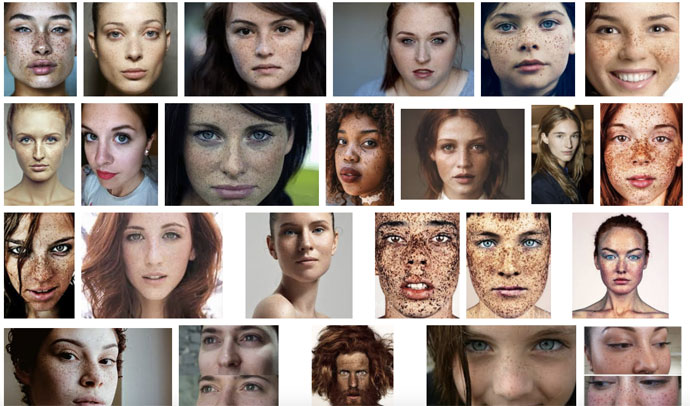I came to terms with my colouring many years ago – I’m a redhead and proud. My skin, as my lovely old nan used to describe is like peaches and cream and covered in fairy footprints.

I’ve also learnt the hard way to care for my skin and have burnt badly in the past, which is why now I’m ever vigilant with myself and my children with sun exposure. Now every day I use a brilliant Factor 50+ Whereas maybe a few years ago a bog standard Factor 15 in my face cream would have been ok. I love my freckles and want them to stay as healthy as they can be!
Thankfully and sadly none of my kiddywinks seems to have inherited my hair or skin tones. But the fact is, Skin cancer affects people of every age, gender and ethnicity, freckled or not!
This Month is Skin Cancer Awareness Month. Good news is that as Skin Cancer is chiefly a lifestyle disease, it is also highly preventable. About 90 percent of nonmelanoma skin cancers and about 86 percent of melanomas are associated with exposure to ultraviolet (UV) radiation from the sun.
Knowing the risk factors and practising sun protection year-round are key to reducing your risk.
Here are The Skin Cancer Foundation’s tips for reducing your skin cancer risk this Skin Cancer Awareness Month: Cancer Awareness Skin Cancer Awareness Skin Cancer Awareness Skin Cancer Awareness
Seek the shade, especially between 10 AM and 4 PM when the sun is at its strongest. An extra rule of thumb is the “shadow rule.” If your shadow is shorter than you are, the sun’s harmful ultraviolet (UV) radiation is stronger. If your shadow is longer thank you UV radiation is less intense.
Do not burn. A person’s risk for melanoma, the deadliest form of skin cancer, doubles if he or she had had five or more sunburns at any point in life.
Avoid tanning and UV tanning booths. UV radiation from tanning machines is known to cause cancer in humans. Indoor UV tanners are 74 percent more likely to develop melanoma, one of the deadliest forms of skin cancer, than those who have never tanned indoors. Tanning bed users are also 1.5 times more likely to develop basal cell carcinoma and 2.5 times more likely to develop squamous cell carcinoma, two of the most common forms of skin cancer. The more time a person has spent tanning indoors, the higher the risk.
Cover up with clothing, including a broad-brimmed hat and UV-blocking sunglasses. Clothing can be your most effective form of sun protection, so make the most of it with densely woven and bright- or dark-coloured fabrics, which offer the best defence. The more skin you cover, the better, so choose long sleeves and long pants whenever possible.
Use a broad-spectrum (UVA/UVB) sunscreen with an SPF of 15 or higher every day. For extended outdoor activity, use a water-resistant, broad-spectrum (UVA/UVB) sunscreen with an SPF of 30 or higher.
Apply 1 ounce (2 tablespoons) of sunscreen to your entire body?30 minutes before going outside. Reapply every two hours or immediately after swimming or excessive sweating. A 227ml bottle of sunscreen should provide two full days of sun protection.
Keep newborns out of the sun. Sunscreens may be used on babies over the age of six months, but they also need to be protected by shade and clothing. Children are susceptible to ultraviolet radiation – just one severe sunburn in childhood doubles the chances of developing melanoma later in life.
Examine your skin head to toe every month. While self-exams shouldn’t replace the important annual skin exam performed by a physician, they offer the best chance of detecting the early warning signs of skin cancer. If you notice any change in an existing mole or discover any new spot that doesn’t heal after several weeks, see a physician immediately. Skin Cancer Awareness
Lastly, if you want a tan, get it from a bottle. Remember the cost of a St Tropez spray tan is far less than a skin cancer diagnosis. For more information and advice contact Cancer Research
* The medical information on Skin Cancer contained in the piece was taken from the Skin Cancer Foundation. You must not rely on the information on Greenwichmums as an alternative to medical advice from your doctor or other professional healthcare providers. If you have any specific questions about any medical matter, you should consult your doctor or another professional healthcare provider. If you think you may be suffering from any medical condition, you should seek immediate medical attention and you should never delay seeking medical advice, disregard medical advice or discontinue medical treatment because of information on Greenwichmums.